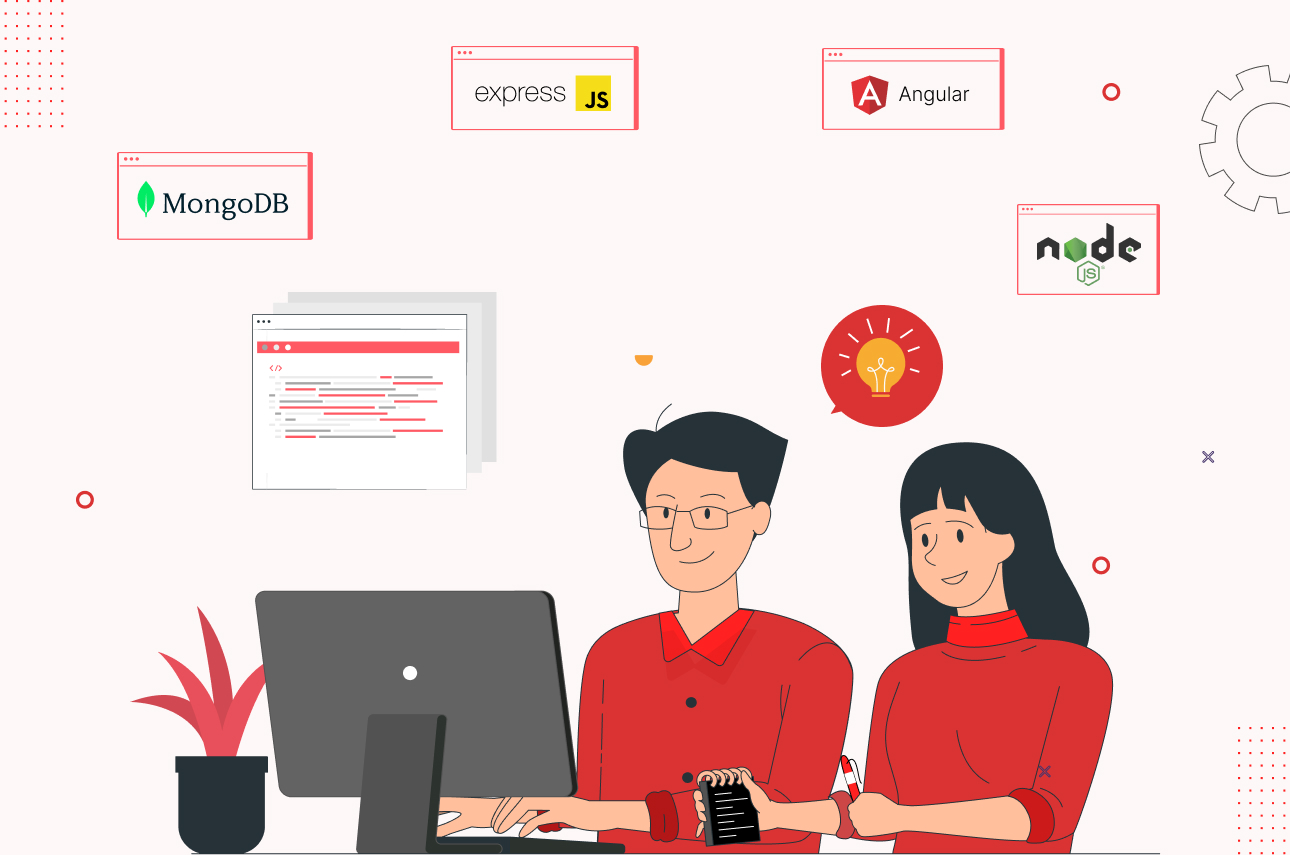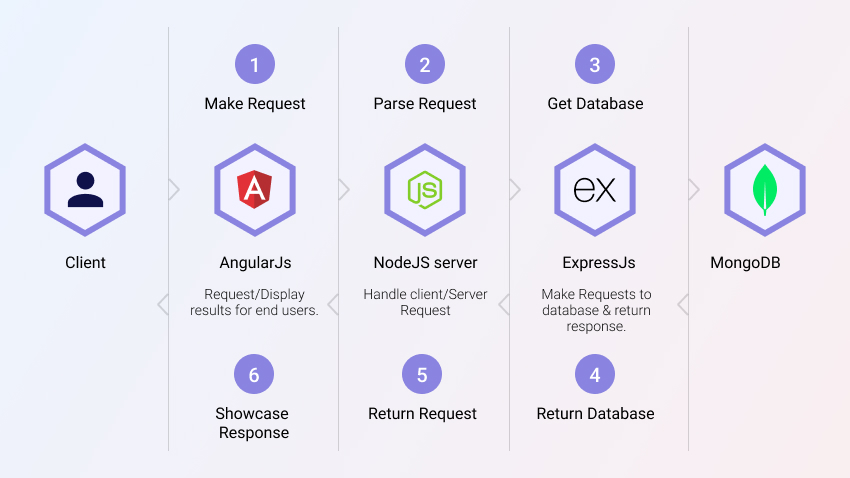What Is MEAN Stack?
MEAN stack, a cornerstone of web development using mean stack, is a compilation of four paramount JavaScript-based technologies. These mean stack components form the core of various mean stack applications:
1. M – MongoDB
2. E – Express.js
3. A – Angular.js
4. N – Node.js
MEAN stack integrates both mean stack front end and backend frameworks with top-notch database management solutions. This holistic approach enables developers to craft dynamic, interactive, and potent web solutions tailored for diverse needs.









